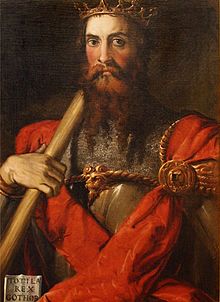History’s Bad Ideas: What Do They Mean Today?

The year was 541.
The Eastern Roman Empire sent a great invasion force to reconquer their home province, Italy, from the Goths – barbarians, in their eyes.
By the winter, things seemed hopeless for the Goths. The Roman army was 12,000 strong, and though they hadn’t yet launched a full assault, that was about to change.
The army of the Romans combined into its full force, and prepared to conquer the city of Verona.
The invasion went very well for the Romans at first. Their generals managed to gain the help of a traitor within the walls of the city, and they captured one of the city gates.
Victory was within their reach.
It was so close, in fact, that the generals grew arrogant.
There was no chance, they thought, that the Goths could ever win. Rather than taking the city right away and defeating the Goths, they decided to argue over how to divide the treasure once they won!
Ironically, the Goths were then able to rally and catch the Romans off guard, destroying their army and prolonging the war for another ten years.
This may sound like a fictional tale designed to explain the faults of greed and arrogance, but it is actually a real historical event that happened.
Yes… every part of that story was true. It is historical anecdotes like these that show the true value history holds, and how much it could help people today.
And this is not the only example of an surprising, interesting, and even amusing event in history.
Another interesting event (or series of events) was during the Merovingian Dynasty of France during the 700s. Originally, the kings of that family were very powerful rulers who controlled a large amount of territory.
However, after a few centuries, their kings started to become more lazy. In fact, even today, they are known as the “do-nothing kings”.
A person called the “Mayor of the Palace” became the power behind the throne, and over the ensuing decades, he became even more powerful.
Finally, at one point, the king died, and the mayor didn’t even bother to appoint a new king, because it wouldn’t have made much of a difference!
It’s true that many people may find some parts of history a jumble of dates and places without meaning.
Not only are stories such as the above two surprising and relatable, they still have meaning today.
If these accounts were still read today, then perhaps repeating mistakes made in the past could be avoided.
Coming Soon: History’s Most Interesting Rulers: What Do They Mean Today?

Oliver Kohn is a 16-year-old senior at Craig High School. He is in his second year on the Newspaper. He has enjoyed writing stories for nearly a decade...








